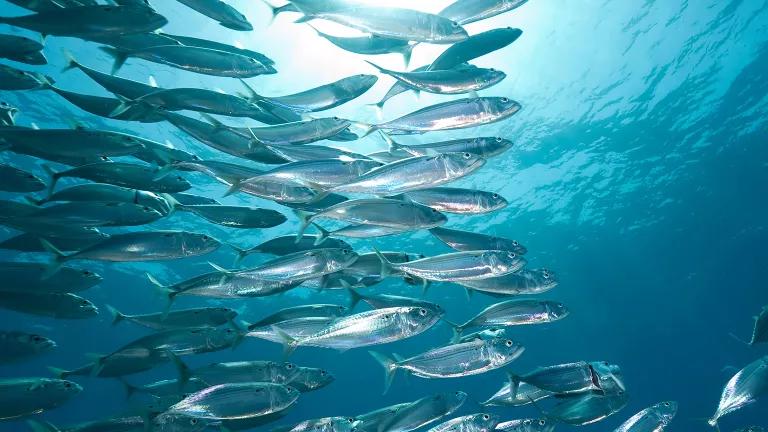Last week's Earth Day brought some great news in the fight against plastic pollution in our waters when the New York Assembly passed a strong bill to stem the flow of a plastic waste called microbeads into the state's ocean and lakes.
Microbeads - tiny plastic particles added as an abrasive or for decorative purposes to personal care products like facial scrubs, toothpaste and shampoos - threaten our waters and health. These minuscule pieces of microplastic (less than 5 millimeters long) easily slip through water treatment plants, look like food to marine animals, and may contain and can soak up toxins in marine sediments (e.g., pesticides like DDT) that can potentially be passed on to people when we eat seafood. Safe, natural alternatives to microbeads are already on the market - apricot shells, oatmeal and other natural substances can serve the same purpose in products without creating a long-term pollution threat.
The Assembly - led by bill sponsor Assemblywoman Michelle Schimel and Assemblyman Steve Englebright, Chair of the Assembly Environmental Conservation Committee - passed A. 5896, "The Microbead-Free Waters Act," by an overwhelming majority of 139 to 1. The bill would prohibit the sale of personal cosmetic products containing synthetic plastic microbeads after January 1, 2016. Over-the-counter drugs that fall under the definition of personal cosmetic products would receive an additional year to comply and prescription drugs are exempt.
The New York Assembly's huge support for the ban is a big win, but it's not time to celebrate just yet. The state Senate's "same as" bill - S. 3932 - is stalled. In a last-minute move in March, the Senate bill's sponsor, Senator Thomas O'Mara, advanced a differently-worded bill in committee - S. 4403 - that fundamentally fails to address the microbeads problem. Not only would S. 4403 delay action for nearly three years beyond S. 3932's deadlines, but it exempts some types of plastic and "biodegradable" microbeads. The bill also forbids municipalities, counties and local governments from taking further action to stop this form of water pollution.
Synthetic microbeads - even those advertised as "biodegradable" (for which there is no current standard in the marine environment) - do not belong in our waters. Biodegradable plastics, largely designed to break down with heat and light, decompose slowly in water. Biodegradable and "marine-degradable" plastics may contain the same chemical additives as traditional plastics and attract toxins, transporting reservoirs of contaminants wherever the current takes them.
NRDC is working with our environmental partners to oppose the weak S. 4403 and urge the Senate to get behind the Assembly's ban. Without this, a steady stream of plastic waste from our personal care products will further choke New York's ocean and lakes and hurt all of us who depend on them.



